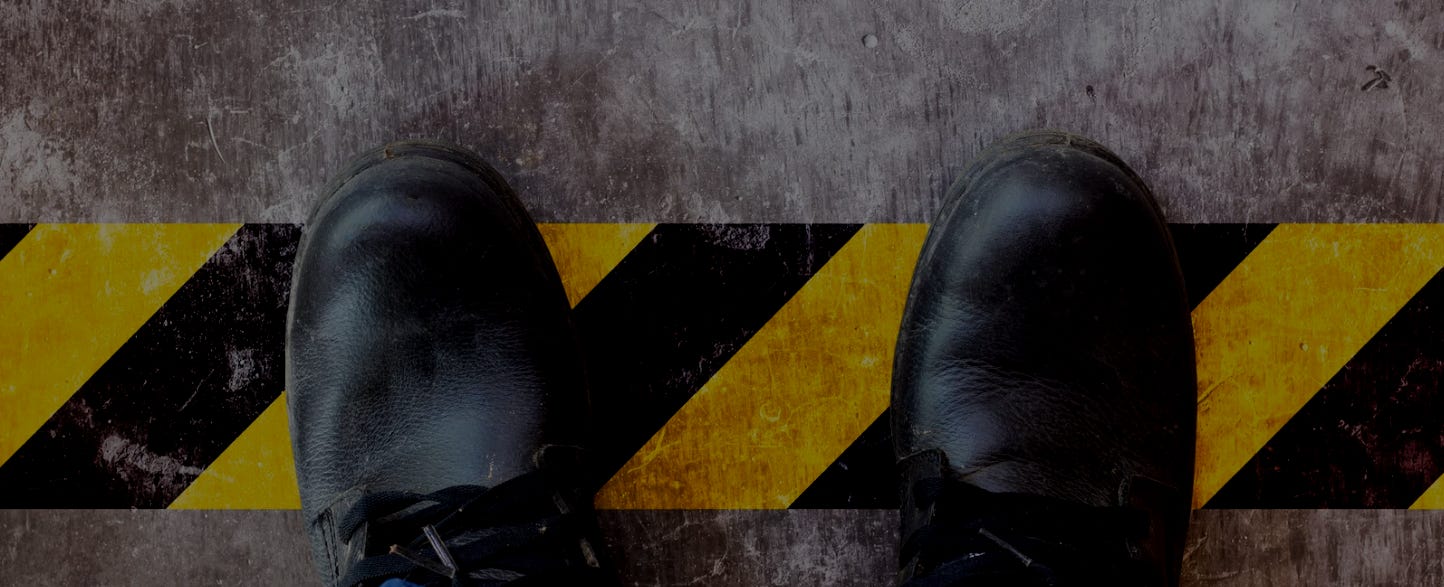Imagine a world where for the next ten years (an eternity in tech time) only the federal government could make rules about AI. A new proposal tucked into a massive bill would create exactly that, leaving artists, creators, and teachers in a regulatory vacuum.
It may be hard to believe but other than research, strategy and understanding the impact of AI, there has been no single, comprehensive federal law that governs all of AI in the US up to today. In this installment of Render & Reason, we’ll hope to answer the following about the 10 year moratorium in the (OBBBA):
What is this and why should I care?
How does this directly threaten my work, career, and community?
How does this disrupt the future of creative education?
What can I do about it now?
What is it and why should I care?
Here we go again. A controversial proposal resurfaced in the U.S. Senate this week, quietly tying a decade-long freeze on state-level AI regulation to crucial federal broadband funding. If that sounds confusing or oddly specific, it's intentional.
This proposal would completely block state governments from creating or enforcing their own AI-related laws for the next 10 years. Instead, all AI regulation would have to come from the federal government. And this is where powerful tech companies often have much more influence.
Animators, VFX artists, and game developers need to pay close attention to this moratorium because it directly threatens critical industry protections currently enforced at the state level. For example:
Industry related protections currently in place
Tennessee’s ELVIS Act guards your voice and likeness from unauthorized AI-generated use
California has proposed laws requiring companies to disclose when they use your creative work to train AI models
Many states already mandate clear labeling of AI-generated "deep-fake" content, safeguarding authenticity and public trust
New York City’s Local Law 144 ensures transparency and fairness in AI-driven hiring and promotion decisions, protecting job equity
Tech companies and lawmakers pushing this ban argue state-by-state regulations slow innovation. But it’s kinda hard not to see a more political motivation: a single federal rule lets powerful tech interests influence the law directly, locking in their advantage and sidelining smaller competitors, independent creators, and state protections.
How does this affect my work, my career and my community?
If this moratorium passes, you’ll lose critical protections…Not just professionally, but personally in ways that will impact your daily life and community:
Your voice and identity: Without laws like Tennessee’s ELVIS Act, your voice or image could be cloned by AI without your consent, risking your personal reputation, security, and livelihood.
Control over your creations: Companies could quietly train AI using your artwork or projects, leaving you uncompensated, unable to protect your creative legacy, and financially vulnerable.
Trust and authenticity: Unchecked deepfakes and unlabeled AI-generated content could erode audience trust, making it harder for you to maintain genuine relationships with your community, clients, or fans.
Fairness in hiring: Without protections like NYC’s Local Law 144, biased AI systems could unfairly affect your career opportunities, leaving you personally at risk of discrimination.
Child safety: Local efforts to combat AI-generated exploitation and harmful deepfake content targeting children would be halted. This means fewer safeguards protecting the most vulnerable in your own community, possibly including your own family.
Election integrity: Your community’s ability to trust election processes is at stake. Without clear labeling rules, AI-generated misinformation could directly manipulate voters, invariably affecting your own voice and power in democracy.
Consumer and civil rights: Algorithmic bias affecting housing, healthcare, and employment decisions could leave you, your family, and neighbors vulnerable, creating personal insecurity around basic needs and fair treatment.
How Does This Disrupt the Future of Creative Education?
This moratorium creates major problems for professors and students in animation, VFX, and game programs by removing state-level guidelines and protections. Here’s how we can begin to see the impact:
Curriculum confusion: Educators would be left teaching in a regulatory vacuum. With no clear legal standards, how do they prepare students for the real-world ethical and professional challenges they’ll face using AI tools?
Ethical ambiguity: Without rules about AI transparency, students risk unknowingly using AI tools trained on stolen or uncredited creative work. Educators would struggle to teach responsible, ethical use of AI without clear guidelines.
Career uncertainty: Professors face an impossible task…Training students for jobs and roles that could quickly disappear or dramatically change due to unchecked AI automation.
Academic integrity crisis: Without state-level guidance, every school or professor would have to individually decide what’s fair or ethical in AI use, creating inconsistency and potential unfairness for students nationwide.
The moratorium doesn’t just disrupt creative careers now. It endangers the stability, relevance, and ethics of creative education for years to come.
So, what can I do NOW?
I have asked this of myself many times too. Perhaps I am biased or maybe some may say, an “alarmist” but I feel this moratorium goes beyond politics. It directly endangers your professional security, personal safety, and the integrity of your local community.
I live in a rural, conservative farming town in North Carolina, where reliable internet is a lifeline for kids and small businesses. Tying broadband access, which is something our community desperately needs, to this deeply problematic moratorium feels manipulative. It’s using our genuine need as bait, tempting lawmakers and locals into supporting legislation without fully understanding the serious implications hidden beneath.
If you are concerned about the potential impacts of the 10-year moratorium on state AI regulations, there are ways to make your voice heard. The legislative process is ongoing, and public input is a critical component of democratic governance.
Right now, the “One Big Beautiful Bill Act” (OBBBA) containing this troubling 10-year AI moratorium, is actively being debated in the U.S. Senate. This is exactly the moment to get involved:
Contact Your U.S. Senators: This bill is in the Senate’s hands. Email, call, or message your two state senators today. Tell them you oppose the AI moratorium and why state protections matter personally to you and your industry. You can find their contact info here.
Reach Out to Your U.S. Representative: Yes, the House already passed this bill. But, only by a single vote. And some representatives are already reconsidering their support. If the Senate makes changes, the bill goes back to the House. Contact your congressperson now, so they know clearly where you stand.
A strong bipartisan group of state leaders and AGs have spoken out against this proposal. Your voice joining theirs can genuinely influence this outcome.
Contacting your representatives is a bit like version control: tedious now, but it keeps shit from blowing up later.
Thanks for taking the time to dive into this with me. Our industry stays strong and creative because people like you care enough to stay involved, one step (and/or one call to your senator) at a time.




Thanks for bringing attention to this. Hopefully the current opposition to this part of the bill stays strong.